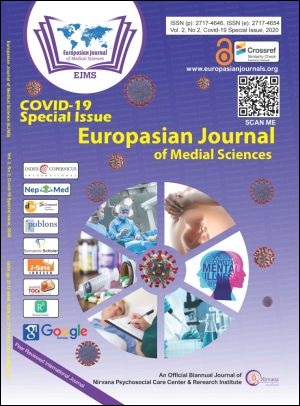Access to Maternal Health Services during COVID-19
Keywords:
Maternal Health, Women's Health, COVID-19, Pandemic, PregnencyAbstract
Most causes of maternal morbidity and mortality can be prevented by giving prompt, suitable treatment to the women by qualified health practitioners. Maternal health services (MHS), which include antenatal care, delivery care, and postnatal care, can play a crucial role in preventing maternal health problems. The recent coronavirus disease (COVID-19) pandemic has had a disastrous effect on the health care delivery system of people of all ages, on a global scale but pregnant women face particular challenges. The aim of this review is to assess the effect of COVID-19 on access to MHS. For writing this narrative review, national and international reports on maternal health services during COVID-19, along with journal articles on the related topic were reviewed. Due to this pandemic, women worldwide are facing more barriers to accessing maternal health care, including restrictions, transport challenges, and anxiety over possibly being exposed to coronavirus. Many women preferred not to seek healthcare due to the fear of themselves being infected with the virus or transmitting it to their unborn babies. Additionally, movement restriction has made it difficult for many pregnant women to reach health care facilities. Even those who managed to reach health facilities have reported not receiving timely care. As a result, a considerable rise in maternal mortality globally has been estimated over the next six months. Despite the circumstances, efforts have been made to boost maternal health in both developed and developing countries. This pandemic has highlighted the importance of health preparedness with special attention given to vulnerable people like pregnant women and newborns while planning for such events.
Downloads
Downloads
Published
How to Cite
Issue
Section
License
Copyright (c) 2020 Smriti Pant

This work is licensed under a Creative Commons Attribution 4.0 International License.
The author(s) retain the ownership of the copyrights for their work published in EJMS without any restrictions. Upon submission, the author(s) grants EJMS a license to publish, including to display, store, copy, and reuse the published content.
License to Publish
By submitting a manuscript to EJMS, the author(s) grant the journal a non-exclusive license to:
- Publish and distribute the content in all formats, media, and platforms (both existing and future), while identifying EJMS as the original publisher.
- Reproduce, display, and store the content in both print and online formats, including institutional and digital repositories.
- Translate, adapt, and summarize the work, including reprints, extracts, and abstracts.
- Develop derivative works based on the original content.
- Include the work in electronic databases and provide links to third-party materials.
Creative Commons Licensing
In addition to EJMS’s publishing rights, authors grant third parties the right to use, share, and distribute their work under the Creative Commons Attribution 4.0 (CC BY 4.0) International License. This allows unrestricted use of the content, provided proper attribution is given to the original author(s) and the journal.

